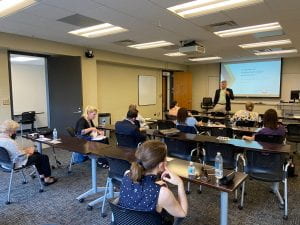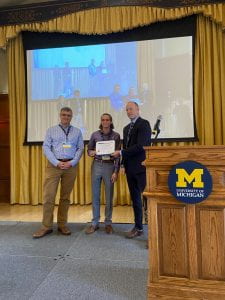ETI headquarter welcomed and had a in-person meeting with eight visitors from Europe who visited Atlanta in the week of July 11, 2022, under the auspices of the US Department of State’s International Visitor Leadership Program with the theme of “Deterrence Today, Disarmament Tomorrow.”

During their visit, the State Department has requested a meeting with Georgia Tech’s Consortium for Enabling Technologies and Innovation, which was coordinated by the Georgia Council for International Visitors (GCIV). Professor Steven Biegalski gave an introductory presentation to the visitors to discuss the ETI Consortium’s mission, research works, and partnerships on July 15, 2022.





